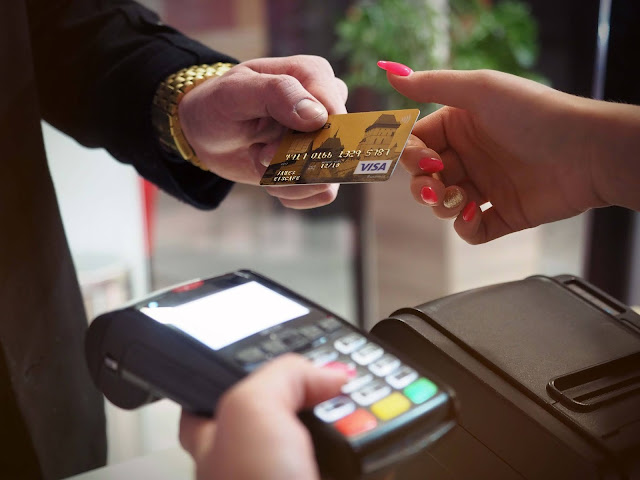Safe Banking Tips for Internet Banking users and mobile banking users:
Do's and Dont's (Some safe banking tips)
- Do not give app access to any unknown user.
- Bank, RBI or any other such organisations never call, send emails or SMSs asking for your personal or banking information. Do not be a victim of such frauds.
- Do not Follow any URL from a message that your are not sure about.
- Do not take help from strangers for using ATM card or handling cash at branch and do not allow them to watch you while transacting.
- Avoid accessing your internet banking account from a cyber cafe/ shared computer. If you happen to do so, change your passwords from your own computer.
- Ensure that you updated correct mobile number with bank to get the transaction alerts regularly.
Are you a victim of fraud:
- If you suspect that card detail is compromised, immediately block your card from mobile application, internet banking or call phone banking center for assistance.
- Immediately Block your Credit card and Debit Card. Or Change your Card PIN.
Bank Smart:
- Do not store sensitive information such as mobile banking password, user ID, etc. on your phone.
- Avoid using Bluetooth in public places as someone may access your confidential data/information.
- Do not click on links embedded in emails/social networking sites that appear suspicious.
And Other Important Tip is Securing your Mobile Device:
- Record the unique 15 digit IMEI (International Mobile Equipment Identity) number. This is usually printed on the phone below the battery, or can be accessed by keying *#06# on most of the phones.
- In case Mobile phone is stolen/lost, this IMEI number is required for registering complaint at Police station and may help in tracking your mobile phone through your Internet Service Provider (ISP).
- Use auto lock to automatically lock the phone or keypad lock protected by passcode/ security patterns to restrict access to your mobile phone.
- Use a PIN to lock SIM card: Use a PIN (Personal Identification Number) for SIM (Subscriber Identity Module) card to prevent people from making use of it when stolen. After turning on SIM security, each time phone starts it will prompt to enter SIM PIN.
- Use password to protect information on the memory card. Report lost or stolen device report lost or stolen devices immediately to the nearest police station and concerned service provider. Use mobile tracking feature.
- Use the feature of Mobile Tracking which could help if the mobile phone is lost/stolen. Every time a new SIM card is inserted in the mobile phone, it would automatically send messages to two preselected phone numbers of your choice, so that you can track your Mobile device.
- Wi-Fi
- Connect only to the trusted networks.
- Use Wi-Fi only when required. It is advisable to switch off the service when not in use.
- Beware while connecting to public networks, as they may not be secure.
- Never connect to unknown networks or untrusted networks.
- When a mobile phone is connected to a personal computer, scan the external phone memory and memory card using and updated anti-virus.
- Take regular backup of your phone and external memory card because if an event like a system crash or malware penetration occurs, at lest your data is safe.
- Before transferring the data to Mobile from computer, the data should be scanned with latest antivirus with all updates.
- Never keep sensitive information like user names/passwords on mobile phones.
- Never forward the virus affected data to other Mobiles.
Some General Information:
- Update the mobile (OS) operating system regularly.
- Upgrade the operating system to its latest version.
- Always install applications from trusted sources.
- Consider installing security software from a reputable provider and update them regularly (like Google Play Store and Apple APP Store.
- It's always helpful to check the features before downloading an applications. Some applications may use your personal data. SO BE SECURE ONLINE (While using Internet)
- If you're downloading an app from a third party, do a little research to make sure the app is reputable.
Keep these tips in mind while banking online:
- Avoid using internet banking on shared computers and public places like cafés and libraries.
- Always remember to log-off on internet banking and close your browser when you have finished your online banking.
- Disable the 'AutoComplete' function within your browser.
- Install firewall and anti-virus software and keep it up to date to help detect and disable malicious software.
Make sure your account information is safe
- Change your internet banking password regularly and never disclose it to anyone.
- Always use strong password with alphanumeric passwords which cannot be guessed easily and for multiple accounts, use different passwords.
- Do not write them down.
- Do not give your account information to telemarketers or to callers claiming to confirm or verify your account information.
- #SafeAndSecureBanking #BeSecureOnline #DigitalIndia
- I Hope you find this article informative. If you have any queries than do let us know in the comments section below and we would love to get back to you at the earliest.Written & Posted by: Sagar Padhy (Cyber Security Researcher & Digital forensics Analyst)
- Ethical Hacker by Passion.
- Location: Odisha, India
- Follow me on Instagram: https://www.instagram.com/sagarpadhy.official/
- Follow me on Twitter: https://twitter.com/sagarpadhy9?lang=en









0 Comments
For More Information Please Comment